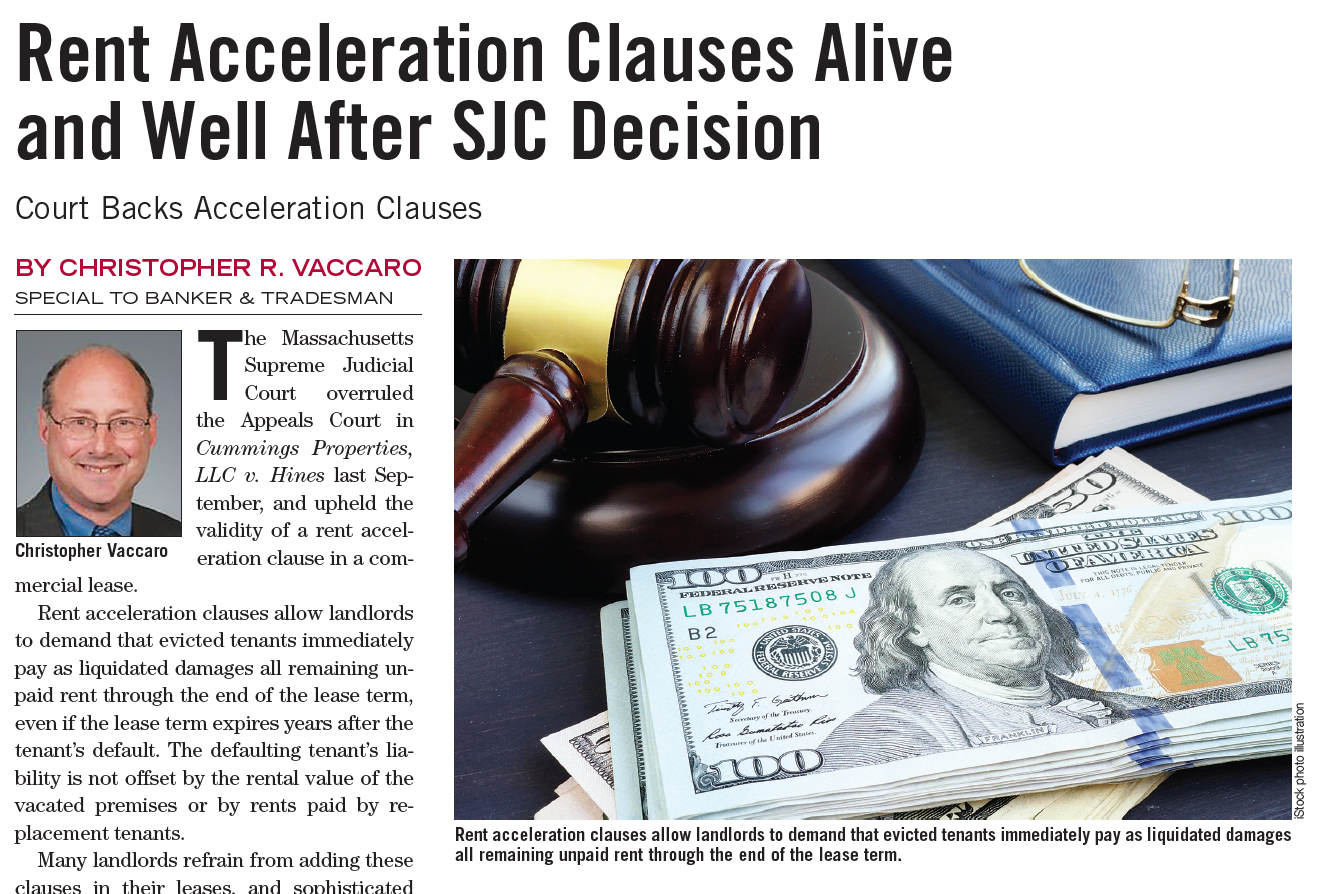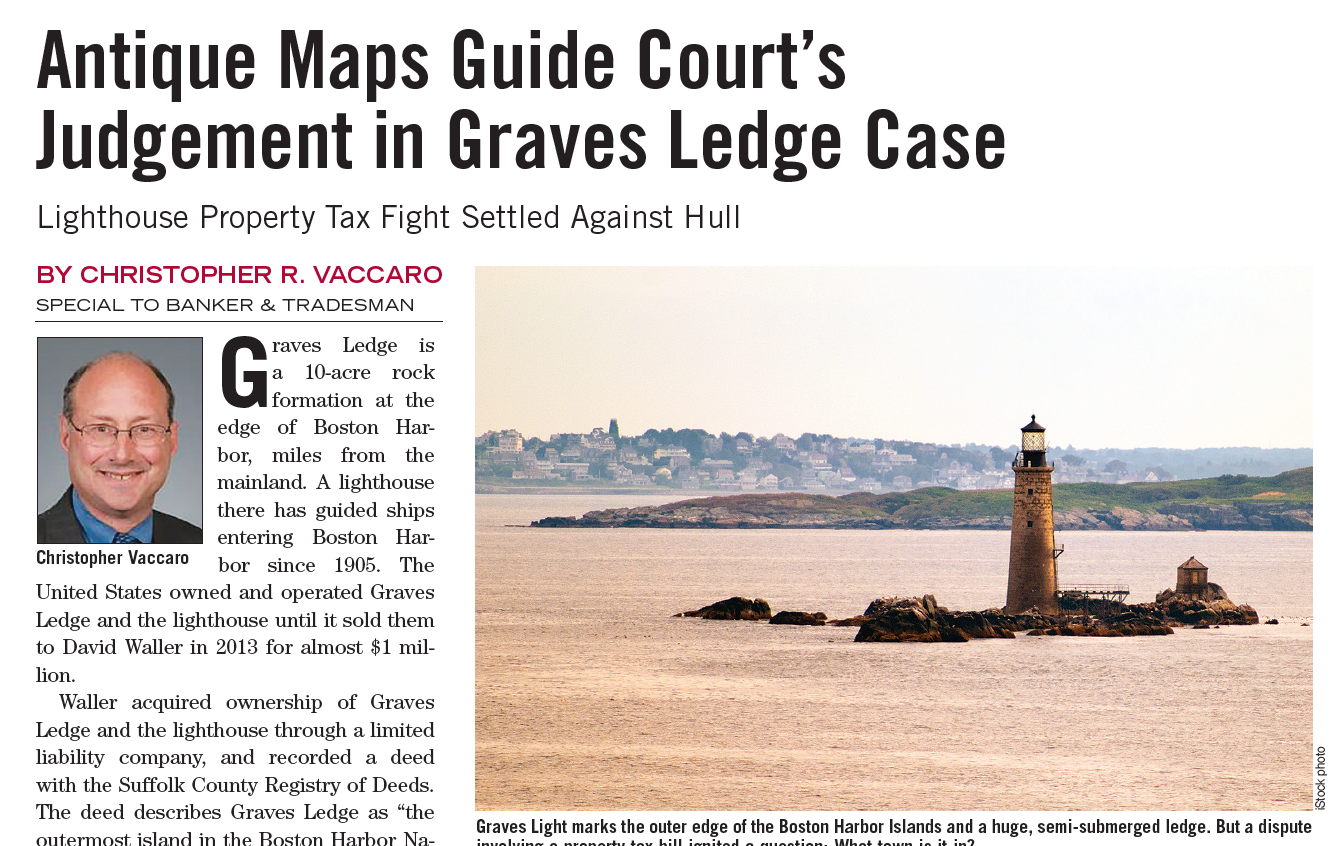 EOHLC Guidelines offer a Roadmap to Compliance
EOHLC Guidelines offer a Roadmap to Compliance
By Christopher R. Vaccaro
Special to Banker & Tradesman

A 2021 amendment to the Massachusetts Zoning Act requires “MBTA communities” to establish zoning districts that facilitate multifamily housing development.
The amendment defines MBTA communities, in effect, as cities and towns that have commuter rail, subway, ferry or bus stations, or are adjacent to cities and towns having those services. There are 177 MBTA communities in eastern Massachusetts. Boston is excluded because its zoning code is authorized under a separate enabling act.
MBTA communities must create at least one zoning district “of reasonable size” where multifamily housing is “permitted as of right.” Districts must be located within a half-mile of transit stations and allow a minimum gross density of 15 dwelling units per acre. The amendment has ambiguities. For example, what is a zoning district “of reasonable size,” and what does it mean for a project to be “permitted as of right”? Where are MBTA communities without public transit stations expected to locate multifamily housing districts? When must MBTA communities comply with the statute?
The Executive Office of Housing and Livable Communities (EOHLC) promulgated guidelines last August addressing these issues. EOHLC is a cabinet-level secretariat created in 2023 to improve housing options in Massachusetts. Its guidelines recognize four classes of MBTA communities: rapid transit communities, commuter rail communities, adjacent communities (cities and larger towns without nearby transit stations) and adjacent small towns. Different requirements apply to each class.
A Direct Path to Approval
For multifamily housing to be allowed “as of right,” zoning districts must permit multifamily housing construction without variances, special permits or similar discretionary zoning relief. But communities can condition permitting on site plan reviews, if the review process does not impose unreasonable delays or conditions. Communities can also place limited affordable unit requirements on projects.
The guidelines regarding the “reasonable size” of multifamily districts are complicated. “Reasonableness” depends on both the acreage of the district and the district’s “multifamily unit capacity,” which is the potential number of multifamily housing units that are developable as of right in the district. For communities other than adjacent small towns, reasonably sized districts generally must have at least 50 acres or 1.5 percent of the developable land in the MBTA community, whichever is less. There is no minimum area for adjacent small towns. Communities lacking transit stations should locate their districts near access to transit stations, or near downtown areas.
When determining the reasonable multifamily unit capacity for individual communities, EOHLC assigns a percentage to the community, depending on its class. The percentage is 25 percent for rapid transit communities, 15 percent for commuter rail communities, 10 percent for adjacent communities and 5 percent for adjacent small towns. EOHLC then calculates the minimum multifamily housing for each community based on whichever is greater: the number of housing units in the MBTA community, times the applicable percentage; or the minimum land area for the multifamily district, times 15 units per acre.
However, minimum multifamily unit capacity cannot exceed 25 percent of total housing in each community. The guidelines make special allowances for mixed-use development zoning districts. EOHLC has established minimum multifamily unit capacities for every MBTA community, which is available online on the agency’s website.
State Grants Contingent on Compliance
EOHLC will issue determinations of compliance to communities that satisfy its guidelines. These will be important to communities seeking various forms of state funding and discretionary grants. MBTA communities should also consider the statement issued last spring by the Massachusetts attorney general, warning that noncompliant communities risk liability under federal and state fair housing laws. EOHLC’s guidelines do not require communities to produce housing units, or meet a housing production target, to comply with the guidelines. Communities only need to show that their zoning allows multifamily housing as of right and that sufficient units can be added, even if such addition is unlikely.
EOHLC anticipates that all MBTA communities will adopt conforming zoning amendments and seek EOHLC determinations of compliance in the near future. The deadline for communities to submit applications to EOHLC for determinations of compliance is Dec. 31 of this year for rapid transit communities, Dec. 31, 2024 for commuter rail and adjacent communities and Dec. 31, 2025 for adjacent small towns.
Arlington, Brookline and Lexington are among several municipalities that recently changed their zoning laws to comply with the guidelines. Other MBTA communities are expected to follow over the next several months, creating opportunities for developers to increase multifamily housing inventory in Massachusetts. The question remains as to how developers will finance projects, in a lending climate with high interest rates and reluctant bankers.
Download the article as seen in Banker & Tradesman on June 26, 2023. Learn more about Christopher R. Vaccaro.







 New IRS ruling on Irrevocable Trusts
New IRS ruling on Irrevocable Trusts


 Stay in control of your estate
Stay in control of your estate